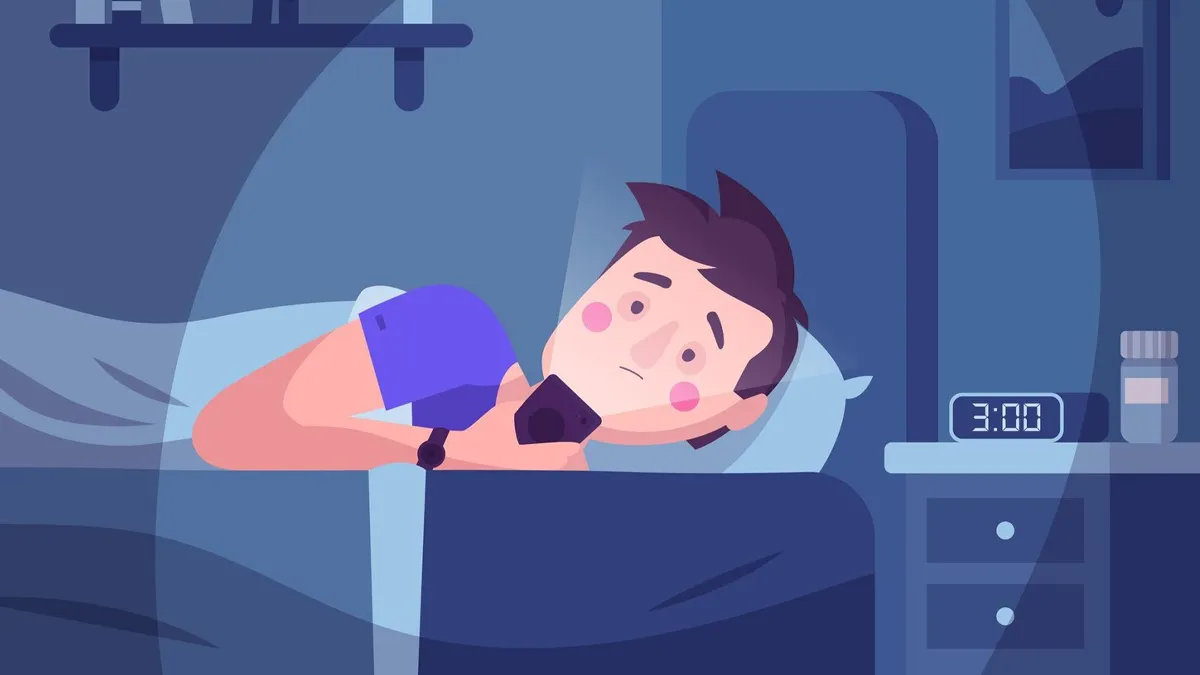
In today’s fast-paced world, a restful sleep is often a distant dream. Not only the elderly, but even teens and young people are struggling with insomnia these days. We all know how insomnia affects our health in more ways than one. Now, according to a recent study, it has been linked to ageing of the brain faster. Let’s take an in-depth look at what insomnia is and what the study is all about.
Table of Content:-
What is Insomnia?
Insomnia is a sleep disorder. Those who have insomnia may find it difficult to fall asleep, stay asleep, or get good quality sleep. Even if they sleep on time and have the right environment, still they might face difficulty. Insomnia can often get in the way of one’s daily activities. It may also keep one sleepy throughout the day.
There are two types of insomnia: short-term (caused by stress or changes in one’s schedule or environment) and chronic (long-term). Short-term can last for a few days or weeks, while long-term occurs 3 or more nights a week, and lasts more than 3 months.
Signs of Insomnia
Sleep is an important part of one’s health. Insomnia thus has the potential to affect one mentally, as well as physically. Those who are suffering from insomnia report a lower quality of life, compared to people who sleep well. On this note, let’s take a look at the symptoms of insomnia:
- Difficulty falling asleep at night.
- Waking up during the night.
- Waking up too early.
- Feeling tired or sleepy during the day.
- Feeling cranky, depressed or anxious.
- Difficulty paying attention, focusing on tasks or remembering.
- Making frequent errors or having more accidents.
- Constant worries about sleep.
What The New Study on Insomnia Says
According to a recent study published in the medical journal of American Academy of Neurology, people suffering from chronic insomnia may experience faster declines in memory and thinking skills as they age. It was published on September 10, 2025. The study states that people with chronic insomnia had a 40% higher risk of developing mild cognitive impairment or dementia, compared to those without insomnia. This is the equivalent of 3.5 additional years of ageing. The study does not indicate that insomnia causes brain ageing, but it only shows an association between the two.
The study was conducted on a group of cognitively healthy older adults — 2,750 people with an approx age of 70 — for an average of 5.6 years. During the course of the study, 14% of those who had chronic insomnia developed mild cognitive impairment or dementia, compared to 10% of those who did not have insomnia.
After taking in account factors like age, high blood pressure, use of sleep medications and a diagnosis of sleep apnea, the study found that people with insomnia were 40% more likely to develop mild cognitive impairment or dementia than those without insomnia.
Tips to Prevent Insomnia
Getting a restful sleep at night often feels like an impossible mission when one is going through a stressful time or has grown older. But we can try and prevent insomnia with certain lifestyle changes. Here are some tips to prevent insomnia:
- Stick to a fixed sleep schedule daily.
- Stay active during the day for a restful sleep at night.
- Check if your medication is affecting your sleep.
- Limit or refrain from daytime naps.
- Limit or refrain caffeine, alcohol, or nicotine.
- Do not eat or drink heavily before bed.
- Create a calming and relaxing ambiance for sleep.
- Create nighttime rituals like a warm bath, reading, listening to soothing music etc, that can help you sleep.
If your lack of sleep is not letting you function properly or hampering your daily tasks, seek medical attention without fail.
The Final Word
Insomnia is a common sleep disorder. A recent study has found that insomnia is linked to ageing of the brain. It is thus essential to develop a healthy sleeping schedule. But if insomnia turns chronic and starts affecting daily life, then one must seek professional help.
Also watch this video
FAQ
What is the reason for insomnia?
Insomnia is caused by a combination of poor sleep habits, stress, and underlying medical or psychiatric conditions.Does insomnia ever go away?
Yes, short-term insomnia often goes away on its own, but chronic insomnia may require treatment to resolve.What calms insomnia?
To reduce insomnia, establish a consistent sleep schedule, create a cool, dark, and quiet sleep environment, avoid caffeine, alcohol, and nicotine, and limit naps.How do doctors diagnose insomnia?
Insomnia is diagnosed by a healthcare provider who reviews your medical and sleep history, performs a physical exam, and may ask you to keep a sleep diary.
How we keep this article up to date:
We work with experts and keep a close eye on the latest in health and wellness. Whenever there is a new research or helpful information, we update our articles with accurate and useful advice.
Current Version
Oct 16, 2025 13:33 IST
Published By : Shruti Das